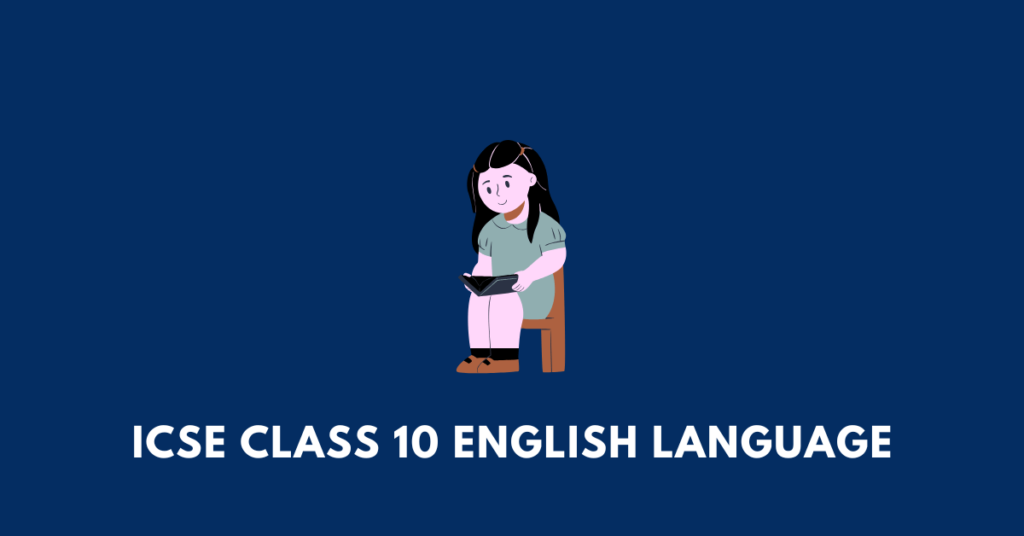Get notes, summaries, questions and answers, MCQs, extras, and PDF chapters that are part of ICSE Class 10 English Language/Grammar (Total English). However, the notes should only be treated as references and changes should be made according to the needs of the students.
Select Chapter
| CHAPTER 1 Tenses and Their Uses Test Paper – 1 |
| CHAPTER 2 Subject Verb Agreement Test Paper – 2 |
| CHAPTER 3 |
| CHAPTER 4 Active and Passive Voice Beginning and Ending Format of a Personal Letter Test Paper – 4 |
| CHAPTER 5 Conditional Sentences Paragraph Writing Comprehension Skills Test Paper – 5 |
| CHAPTER 6 Sequence of Tenses Types of Composition Comprehension Test Paper – 6 |
| CHAPTER 7 Direct and Indirect Speech Factual Writing Test Paper – 7 |
| CHAPTER 8 Synthesis Narrative Composition Test Paper – 8 |
| CHAPTER 9 Transformation of Sentences Descriptive Composition Summary Writing Test Paper – 9 |
| CHAPTER 10 Transformation of Sentences Argumentative Composition Letters of Application Test Paper – 10 |
| CHAPTER 11 Prepositions Personal Writing A Specimen Summary Test Paper-11 |
| CHAPTER 12 Adjectives Picture Composition Letters of Complaint Test Paper – 12 |
| CHAPTER 13 Comparison ofAdjectives Stories Precision in Summary Writing Test Paper – 13 |
| CHAPTER 14 Articles Characters Sample Letter Test Paper – 14 |
| CHAPTER 15 Adverbs Critical Writing Selective Summary Test Paper – 15 |
About ICSE Class 10 English Language (Total English)
ICSE Class 10 English Language and Grammar focuses on developing a student’s ability to express themselves clearly and effectively. It begins with a strong foundation in tenses, ensuring students understand how verbs shift with time. Subject-verb agreement is another key topic, teaching correct pairing in sentences. Students practice composition skills through various formats like formal and informal letters, notices, and emails. These tasks help refine their written communication.
Active and passive voice usage, direct and indirect speech, and transformation of sentences introduce structural flexibility. Conditional sentences and sequence of tenses teach nuances in meaning and context. Prepositions and adjectives enhance sentence precision, while adverbs refine the tone of expression. Vocabulary expands through exercises in comprehension and summary writing, encouraging students to extract, interpret, and condense information.
The syllabus includes narrative, descriptive, factual, and argumentative compositions, sharpening creativity and critical thinking. Picture and character compositions offer visual and interpretive challenges. Personal writing adds emotional depth, connecting real experiences to language.
Test papers throughout the syllabus provide structured practice, while listening and speaking tasks build oral fluency. Aural and oral sections ensure students can engage confidently in spoken English. The entire curriculum balances grammatical rules with expressive writing to nurture versatile communication.

Get notes of other boards, classes, and subjects
